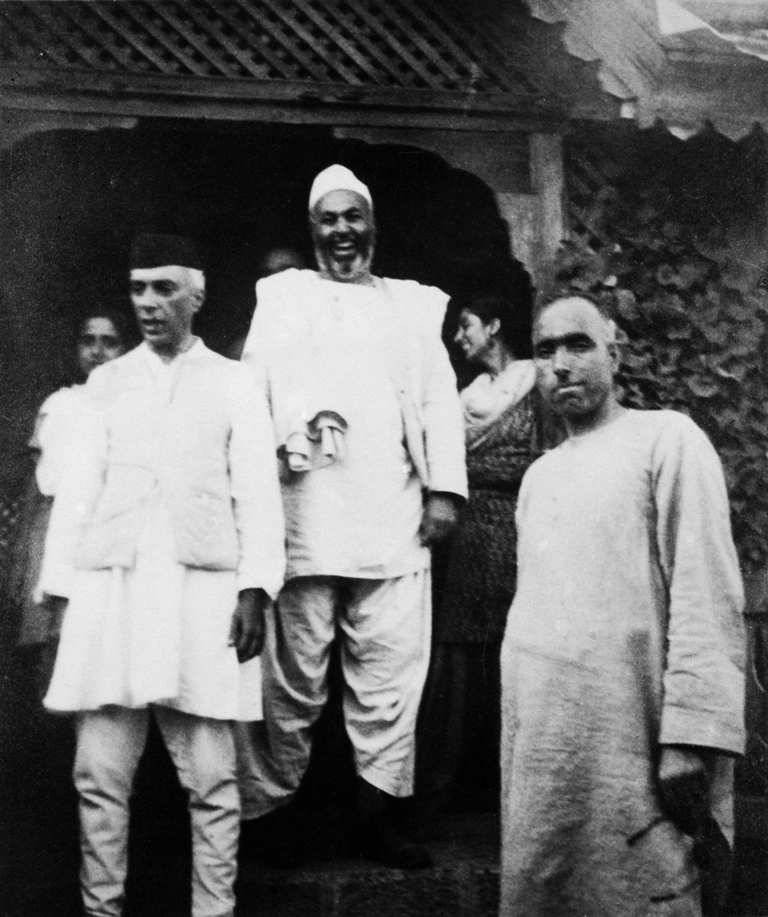
"Prior to independence, Balochistani Pashtuns under the Achakzai's leadership had become a prominent, substantial, and serious political force of British Balochistan. It was probably more influential than Kalat State National Party(KSNP)", writes Martin Axmann in his book Back To The Future: The Khanate Of Kalat And The Genesis Of Baluch Nationalism 1915-1955.
Samad Khan Achakzai, born on July 7 1907 in the muddy village of Inayatullah Karez, never received any formal education, but his political acumen was far beyond any scholar of the time. He was raised when WW1 was right on the corner and the nationalism along with pluralistic democracies were on rise. The shifting sand dunes of Subcontinent from arm to political struggle opened new avenues and breeding grounds for political thoughts.
In the midst of these developments the October revolution of Russia greatly impacted the politics of India and the politics of British Balochistan along with Khanate of Kalat State where nationalism was on the rise.
At young age he translated the Holy Quran in Pashto and when he was in the 8th standard he was warned for mobilising against British Raj. He was among those frontline heroes who opposed the imperialist exploitative Britain policy of robbing people of British Afghanistan of their identity.
In his book, Axmann writes that "by chance and historical 'accident' cession of tribal areas of Afghanistan to the British after Second Anglo-Afghan War in the treaty of Gandamak, and only due to a misnomer, the concerned Pashtun population had become part of British Balochistan in 1880. British Balochistan should actually have been labelled 'British Afghanistan' as the population was Pashtun rather than Baloch". This sums up the struggle of Samad Khan to stir his people out of the misnomer and restore their true Identity.
As a political figure, he first came to prominence at the age of 25, i.e. in 1932 when he met Mahtama Gandhi in Ahmedabad and participated in Round Table Conferences. In the autobiography of SSP British Balochistan, "Samad Khan Achakzai's meetup with Gandhi left a lasting impression on him and he started wearing Khaddar Clad and Gandhi Cap as a symbol of resistance to British rule."
Soon after, in December 1932, he chaired the first All India Baloch and Balochistan Conference in Jacobabad. The meeting was fairly representative of all the regions of Kalat State and British Balochistan, along with Baloch living in Sindh and Punjab. The conference was a landmark as it was the first time when Pashtoon and Baloch were brought together and passed 47 resolutions demanding a status of Governor's Province with constitutional reforms and provincial autonomy same as that of other provinces.
In 1938, after the division of Anjuman-e-Ithehad, Samad Khan created a new political entity Anjuman-e-Watan. According to the Gazette record of British authorities, a letter from AGG Poulton to Joint Secretary of Government of India Major Crichton stated "...A large majority of the non-local muslim population in urban areas have their sympathies with the Muslim League while rest i.e, the local Muslim urban and tribal population follow the Anjuman-e-Watan."
This shows that Anjuman-e-Watan was a leading political force of British Balochistan whereas Kalat State National Party(KSNP), an offshoot of Anjuman-e-Ithehad, was leading force in Kalat State. When the WW 2 started in 1939, Anjuman-e-Watan, Congress and Khudai Khidmatgar were on same page and opposed the participation or help in Britain's war efforts. This strict non-violent approach and candid criticism of war efforts in his newspaper 'Istaqlal' earned him the title of 'Baluchistan Gandhi'.
After the creation of Pakistan he was imprisoned for six years (1948-1954) in a fake case of engaging in 'Disruptive Propaganda' in his weekly newspaper. Once he was released, he again formed a political party 'Wror Pashtoon' and set the creation of Pashtoonistan province inside Pakistan and democracy for his people as single highest un-deviated goal.
In his autobiography My Life And Times he said, "it has been an important aim of my life from the beginning to create a separate administrative unit of the Pashtoons called Pashtoonistan consisting of all those contiguous territories of Pakistan in which they reside but which are currently under the inherited British laws and rule, divided under separate nomenclatures and administration."
He goes on to say "some people are misled that Pashtoonistan movement...is to bring the Pashtoon homelands under Afghanistan...I announce with full force of my belief and conscience that all this is wrong, no Pashtoon can even think of these lines." This clarifies that Samad Khan was clear in his ideology stance.
On the cold night of December 2 1973 Samad Khan Achakzai was martyred while he was at his residence. Pashtoons will pay tribute to Shaheed Samad Khan Achakzai on his 50th Martyrdom anniversary. His ideals are yet to be followed to realise his dream of unified province of Pashtoonistan, Afghania or Pashtoonkhwa.

